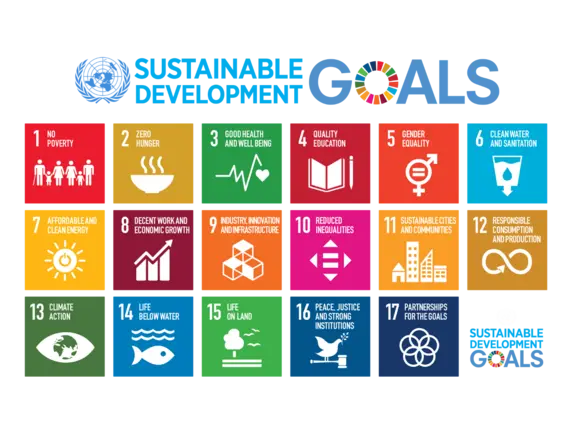Sustainability Mission Statement of the University of Bamberg
Mission and Vision Statement
The University of Bamberg aims to make a scientific and institutional contribution to societal transformation and ensure its own future viability through a concept of sustainable development. Its understanding of sustainability is rooted in an ethical framework and guiding principles that emphasize:
- Respect for human dignity and human rights
- Preservation of natural resources
- Inter- and intragenerational justice
Sustainability is not perceived as a one-time end state but as an ongoing process of “sustainable development.” This involves continuous exploration, learning, and designing activities across all areas of life, ensuring that decisions take the following four perspectives into account:
1. Ecological Sustainability: Decisions must not endanger the integrity of global ecosystems
2. Social Justice: Policies must be fair within the present generation and ensure that future generations also have the resources for self-determined living conditions
3. Economic Viability: Economic performance must remain stable, addressing issues of livelihood security, meeting needs, and fostering equitable prosperity on global, regional, and local scales
4. Cultural Diversity and Critical Thinking: Policies must promote cultural diversity and support critical and creative thought
This sustainability mission is grounded in the United Nations’ Sustainable Development Goals (SDGs) and Article 2, Paragraph 7 of the Bavarian Higher Education Innovation Act (BayHIG).

Achieving the 17 SDGs requires the creation of knowledge and systematic skill developments. The unique combination of humanities, cultural studies, social sciences, and information science subjects at the University of Bamberg provides a robust base for the necessary research and educational task. This interdisciplinary focus enables the university to set specific priorities that can be enhanced through national and international collaboration. The specific profile of the University of Bamberg is particularly visible in the sustainability strategy, in which interdisciplinary target perspectives are formulated and associated bundles of measures are concretized.
Accordingly, the university has a prominent, universal role to fulfil in realizing these goals. The university is aware of this challenge and is actively involved in shaping the necessary processes of change at a local and global level.
The sustainability mission emphasizes scientific research and the dissemination of theories and results in teaching and education. All university members, status groups, and committees are engaged in creating an environment for sustainable development that is widely accepted, actively supported, and thus effective in the long term.
Key Measures for Goal Achievement at the University of Bamberg
Resarch
- Conducts systematic analyses of resources, systemic relationships, and behavioral mechanisms to generate knowledge for societal and technological change.
- Evaluates options, fosters societal dialogue, and provides both foundational insights and concrete examples for implementation.
Teaching
- As stated in the university’s teaching mission, teaching serves as a multiplier for sustainable thinking and action.
- Provides discipline-specific and interdisciplinary methods and equips students to apply, critically reflect on, develop, and disseminate these principles.
- Recognizes sustainability as a multidimensional goal system that requires careful balancing of conflicting objectives.
Administration and Campus Management
- Strives to set an example on the path to becoming a climate-neutral and sustainable institution.
- Encourages sustainable actions by its members through tools like transparency measures for resource consumption and incentive mechanisms.
- Pays particular attention to the sustainable use and operation of its (historical) building stock within the UNESCO World Heritage Site of Bamberg.
Knowledge Transfer and Societal Dialogue
- Fulfills its obligation under the BayHIG to promote social, ecological, and economic development through knowledge and technology transfer.
- Aims to make its publicly funded knowledge available to address societal challenges and foster mutual knowledge exchange.
- Transparently discloses progress in its own sustainability practices.
Governance
- Aligns all university activities with the concept of “sustainable development” as outlined in the UN Agenda 2030.
- Establishes an institutional framework to embed a “culture of sustainability” through participatory involvement of all status groups.
Develops and implements organizational processes and allocates resources to achieve these goals.
Concrete action plans for all five areas are to be developed within a planning horizon up to 2030, with continuous monitoring of their implementation progress.
The sustainability mission statement was drawn up by the Steering Group and adopted by the Executive Board of the University in November 2022.